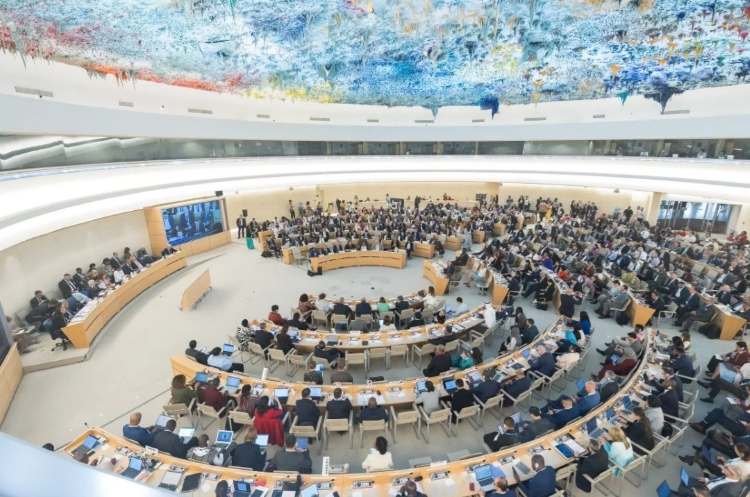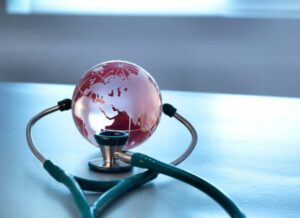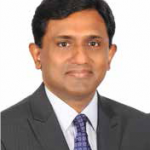
The Seventy-eighth session of the World Health Assembly is underway in Geneva, Switzerland, from May 19 to 27, with the theme ‘One World for Health’. Health ministers, senior national representatives, and key non-state actors have gathered at this critical moment in global health to deliberate on pressing challenges and chart a path forward.
This year’s Assembly marks a turning point. For the first time, the United States has taken a backseat, with the absence of its typically dominant delegation subtly reshaping the tenor of the discussions. Simultaneously, the World Health Organisation is bracing for substantial staff retrenchment, amid a financial crunch that threatens the organisation’s operational capacity. Geneva, home to over 8,000 individuals connected to WHO, international development agencies, and other global health stakeholders, is witnessing quiet unease.
READ | Fall in manufacturing gestation time raise hopes of capex revival
Yet the WHA78 theme signals an urgent call for global solidarity and health equity—emphasising that everyone, everywhere, deserves a fair chance to lead a healthy life, even in uncertain times.
Towards a historic pandemic agreement
One of the most anticipated developments at WHA78 is the expected adoption of the pandemic agreement—a landmark global accord nearly three years in the making. Negotiated under the aegis of the Intergovernmental Negotiating Body, the agreement seeks to ensure the world is never again caught unprepared as it was during the COVID-19 crisis. If adopted under Article 19 of the WHO Constitution, it will become only the second international agreement of its kind—marking a historic moment in multilateral health cooperation.

Designed to foster global coordination on pandemic preparedness, prevention, and response, the treaty emphasises equitable access to countermeasures, timely data sharing, and accountability. Supporters argue it is a once-in-a-generation opportunity to reinforce global health security.
Funding the WHO’s future
A top priority for WHA78 is the financial sustainability of WHO itself. Member States are reviewing a proposed 20% increase in assessed contributions—the mandatory membership fees that fund WHO’s core budget. The debate will directly impact the Program Budget 2026–2027 (PB26–27), which is part of the upcoming Fourteenth General Programme of Work (GPW14), covering 2025–2028.
Facing economic headwinds, WHO has proposed a revised PB26–27 of $4.267 billion, down from the original projection of $5.3 billion—a 22% cut reflecting tough fiscal decisions. For the current year, WHO activities are also being reprioritised, with cost-saving measures such as shorter speaking times, minimal evening sessions, and curtailed hospitality and exhibits. These austerity efforts aim to preserve WHO’s capacity to support countries while refocusing on its core mandate.
The social determinants of health
Equity remains a recurring theme across WHA78’s agenda. The Assembly will deliberate on the World Report on Social Determinants of Health Equity (2025), which highlights persistent disparities in health outcomes tied to income, education, housing, and social cohesion. Delegates will explore how these factors interact with larger crises such as climate change, food insecurity, and displacement.
The agenda includes discussions on climate change, universal health coverage (UHC), health financing, and social connection as a determinant of health, as well as emerging threats like antimicrobial resistance (AMR). More than 75 items are scheduled for deliberation, with over 40 resolutions and decisions up for adoption—many stemming from the WHO Executive Board’s 156th session earlier this year.
Spotlight on side events and collaboration
Despite tight budgets, WHA78 features 45 official side events hosted at the Palais des Nations between May 19 and 24. These offer countries and partners a platform to showcase innovation and collaboration in strengthening health systems.
A notable high-level Pledging Event on Sustainable Financing will be held on May 20, providing an opportunity for governments and donors to contribute to the WHO Investment Fund. This will be followed by a Ministerial Roundtable on Data and Sustainable Financing on May 21, bringing together health and finance ministers, technical experts, and global partners to chart actionable steps for strengthening health data systems and long-term funding models for achieving the Sustainable Development Goals (SDGs).
A fraught landscape, An unfinished agenda
The 78th WHA convenes at a time when global health remains a vast and unfinished agenda. Despite technological breakthroughs such as AI-driven diagnostics, telemedicine, and personalised medicine, questions linger over how these innovations will be equitably distributed across populations and geographies.
The climate crisis looms large, with rising temperatures and environmental degradation exacerbating health risks, particularly for vulnerable communities. The growing burden of non-communicable diseases (NCDs)—including diabetes and cardiovascular conditions—demands fresh strategies for prevention and management. Meanwhile, antimicrobial resistance continues to outpace global countermeasures, raising fears of a post-antibiotic era.
The central challenge remains clear: ensuring that health systems everywhere are resilient, inclusive, and sustainably financed. While WHA78 is unlikely to resolve these systemic issues in one sweep, it may yet reaffirm the commitment to “One World for Health”—a vision increasingly vital in a fragmented and volatile world.
Dr Joe Thomas is Global Public Health Chair at Sustainable Policy Solutions Foundation, a policy think tank based in New Delhi. He is also Professor of Public Health at Institute of Health and Management, Victoria, Australia. Opinions expressed in this article are personal.

